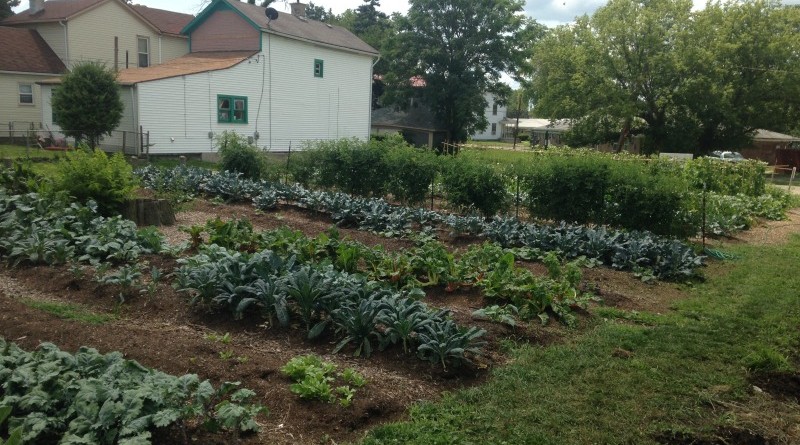Partnerships build garden, community in unexpected place
By: Julia Hall – Staff Writer
With the onset of spring, green buds are arising in unexpected places: Dayton’s urban agricultural sites. The Hanley Sustainability Institute has sprouted a new partnership with both Mission of Mary Cooperative and East End Community Services to embark upon a new project in the Twin Towers Neighborhood in Lincoln Hill. This project entails the utilization of a five-acre plot of land in Twin Towers to create a community building space and urban farm.
“This project is based on a partnership with Mission of Mary, UD Hanley Institute and East End Community Services,” said Tess Keener, December 2015 UD graduate and project coordinator for the Lincoln Hill urban agriculture project. “They had been talking about using this land for years, using this empty lot for community building purposes, for more urban agriculture, then UD got pulled in the mix.”
“These partnerships are huge,” sophomore mechanical engineer Maddie Beban said. “I love seeing UD and its members reaching out to the community at large, especially in establishing mutual goals and beneficial relationships.”
These partnerships have been developed to engage both University of Dayton students and the Dayton community in urban agriculture, learning experiences and other communal events. Connecting students and the greater Dayton area was an important aspect of this project.
“We want the neighborhood and community to feel involved and engaged in a few different key ways from the very beginning, helping us to plan and lay out the site and to helping us to figure out the best use of the different areas,” Steven Mackell, Mission of Mary’s farm manager, said. “Additionally, there is all the physical work that will be going into the site itself and having community members out there helping alongside us- certainly the urban farmers like the staff at the Mission of Mary, but also UD students.”
Keener shares Mackell’s vision and energy and said she hopes the partnership will spark conversations among UD students about their city.
“I am really excited about having a place for UD students to go to enjoy, to talk and to interact with Twin Towers, East Dayton, [and] Dayton residents about life and about how good we have it on campus and how different it is across the street,” Keener said.
The Hanley Institute, with its goals for student experiential learning, has employed this opportunity as a way for UD students to learn outside the normal classroom setting. They hope to maintain a connection after the completion of the structures and garden.
“We have had courses be involved in proposed site design, proposed engagement doing food access surveys and such,” Keener said. “Right now, we have a graphic design class working on the branding and logo. We also have students working at soil restoration and rejuvenation.”
The first planting portion of the project is forecasted to occur this spring.
“Personally, outside of my role in the course working with soil restoration, I’m excited to have an off-campus location for exploration of urban gardening and outdoor recreation,” Beban said. “UD means nothing without context, and as much as we push for understanding of the greater, global world, if we don’t explore the local sphere we’re wasting countless educational opportunities.”
Learning associated with the new urban garden and community space will benefit the members of the community as well, particularly children.
“To have an urban setting where people can see those life systems happening is really interesting and dynamic,” Mackell said. “It certainly gives a volume of learning opportunities for the community as a whole. Urban agriculture encourages people to eat and consume and purchase things locally and to support the local food economy that is happening. These are some of the advantages of urban agriculture, in addition, to getting people out on the sites actually digging in the dirt, touch, and feel, and see things growing and understanding how agriculture actually works.”
If students have any suggestions regarding the Lincoln Hill urban garden project or would like to get involved, contact Tess Keener at keenere1@udayton.edu. To read more stories on UD’s involvement in sustainability, visit here.

